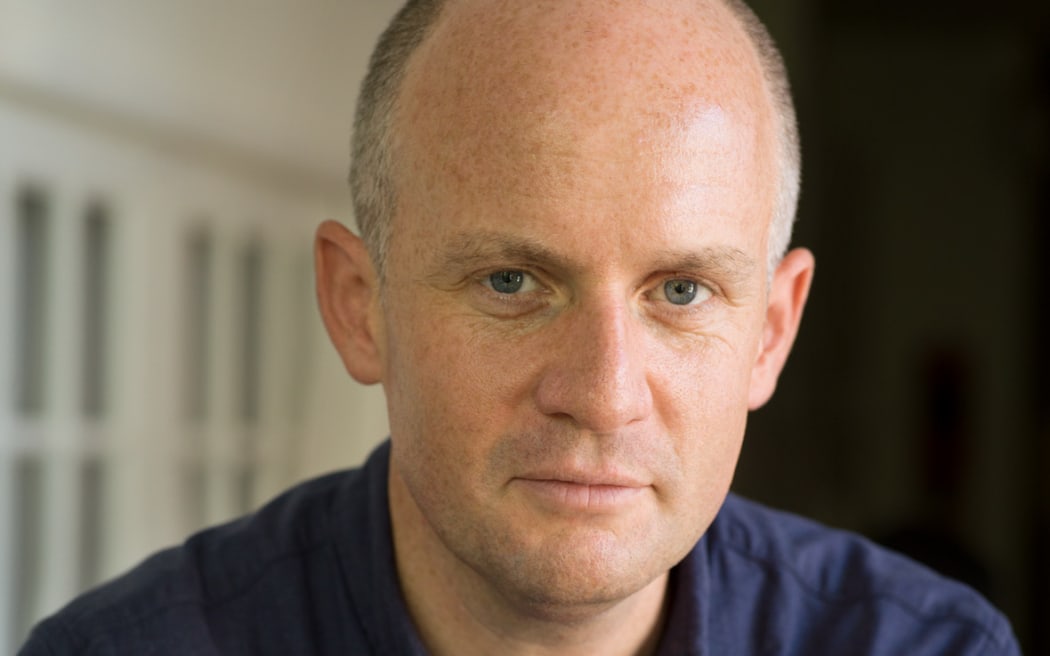Many of us go through life as if one day, eventually, we might get through everything on our to-do lists and satisfy everybody's demands.
This is simply impossible, says writer Oliver Burkeman, so we need a more realistic approach to managing our time effectively.
He makes his case in the new book Four Thousand Weeks: Time Management for Mortals.

Oliver Burkeman is a Guardian writer based in New York. Photo: Hasselblad X1D
For over ten years, Oliver Burkeman wrote a column about personal wellbeing for the Guardian.
If you make it to 80 years old, life is just 4,000 weeks long, Burkeman tells Jim Mora.
When we acknowledge the finite nature of both our lives and our personal capacities, we can better focus on what's really important and actually be more effective, he says.
The desire many people feel for a sense of constant growth and pushing through limits has, at its heart, the avoidance of contemplating our own mortality, Burkeman says.
"An awful lot of what goes wrong in how we seek to use our time in a meaningful sense comes from the fact that what we're really doing a lot of the time is trying to avoid feeling."
Many of us spend a lot of time trying not to feel things we've decided are too dangerous to feel, he says.
Burkeman tackled his own fear of embarrassment by daring himself to speak out loud the name of every train station to his fellow commuters one day.
"Anyone I tell this to sort of squirms as if this would be the worst thing in the world. but doing it helps you realise it isn't as bad as you fear - it's unpleasant but it isn't the apocalypse."
His train experiment was based on the ideas of American psychologist Albert Ellis who believed that if you are afraid of something you should deliberately try to court that experience.
"It's really useful just to bring down to size the fears we have in life."
If you feel, like Steve Jobs, that your mission on earth is to "put a dent in the universe" you're setting yourself up for a disappointing life, Burkeman says.
When we stop struggling to achieve what is actually impossible it frees up energy and attention for the things that really matter and are not impossible.
One daily technique Burkeman finds effective for keeping his own productivity expectations in check is the 'rule of four', which is based on the idea that work which demands serious mental focus can only be done for around three or four hours a day.
Throughout history, great thinkers such as Charles Darwin, Charles Dickens and Virginia Woolf acknowledged the limits of their energy and focused on doing intense creative work for only around four hours per day, Burkeman says.
Part of the reason Westerners report being less happy than people living in Kenyan slums, he says, is we have inflated expectations of what our days, and our lives, can be.
"Those of us in less economically unfortunate circumstances spend a lot of our lives trying to shore up a sense of security, a sense that is everything going to be fine… that life is going to turn out the way we really want it to.
"There's something to be said for being fully reminded by the circumstances of your life that you cannot control your future, that you are dependent on your neighbours and everybody showing some modicum of goodwill to each other."
Thanks to mass media, the full spectrum of global suffering now permeates our lives, Burkeman says, alongside a message that "it's all for all of us to take care of".
Yet human brains are not designed to cope with caring about a great number of things at once and attempting to do that can be paralysing.
Add to this the fact that social media companies, in taking over our attention, cleverly force us to care about things we don't want to care about.
"There's a lot to be said about learning to withhold attention from lots of things so you can be a more effective person."
Pulling back from the endless quest for productivity requires vigilance, he says, as it can be unpleasant coming into contact with our own limitations.
"You have to be okay with the discomfort of knowing there are things you kind of should be doing but aren't doing."
Listen - Oliver Burkeman on time management for mortals (Afternoons, 2022)
Listen - Oliver Burkeman on happiness for people who can't stand positive thinking (Saturday Morning, 2013)

